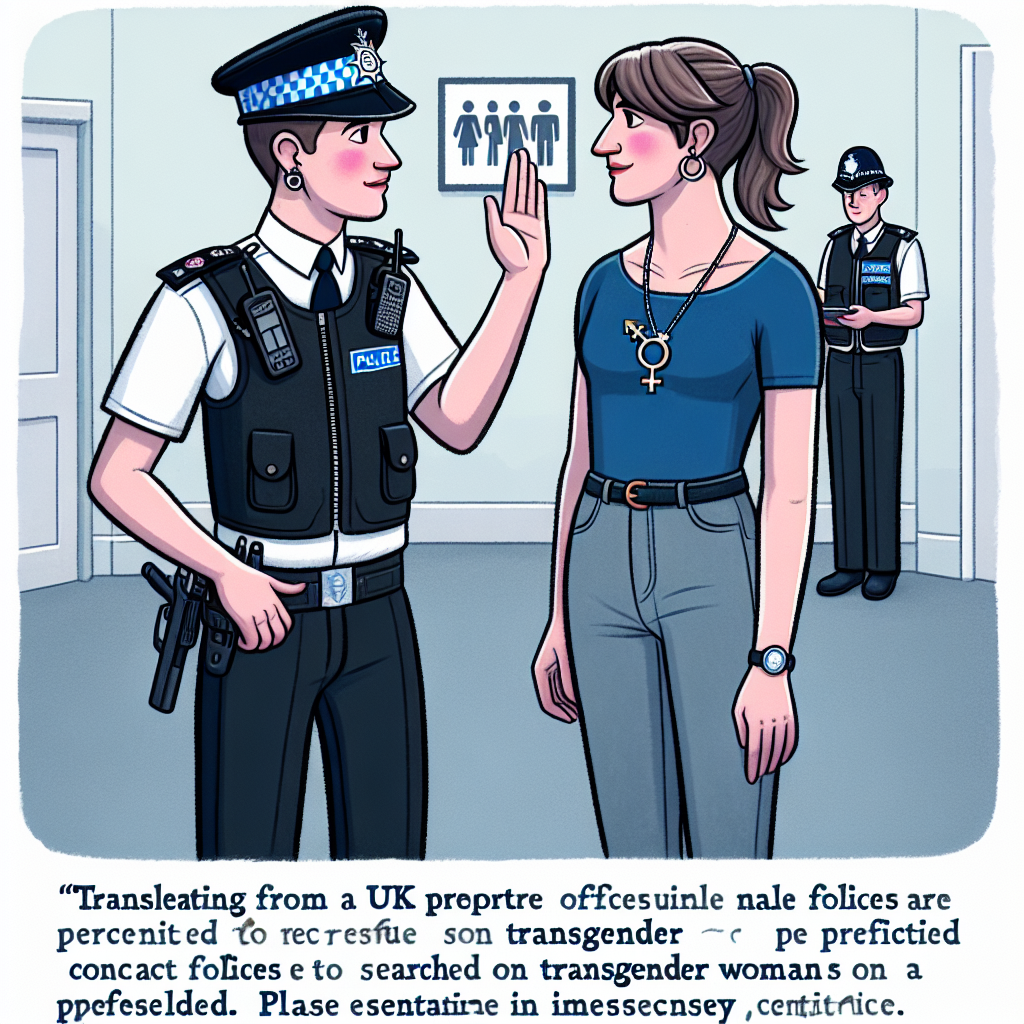UK Report: Male Officers to Conduct Searches on Trans Women
UK Report: Male Officers to Conduct Searches on Trans Women
Overview
A recent report from the United Kingdom has sparked significant debate and concern regarding the policy allowing male police officers to conduct searches on transgender women. This development has raised questions about the balance between security protocols and the rights and dignity of transgender individuals.
Key Points of the Report
- Policy Details: The report outlines circumstances under which male officers are permitted to search transgender women, primarily focusing on situations where female officers are unavailable.
- Legal and Ethical Concerns: Critics argue that this policy may infringe on the rights of transgender individuals and could lead to potential abuses or discomfort during searches.
- Security vs. Rights: Proponents of the policy emphasize the need for flexibility in law enforcement operations, especially in urgent situations where immediate action is required.
Public and Expert Reactions
The report has elicited a wide range of reactions from various stakeholders, including:
- LGBTQ+ Advocacy Groups: These organizations have expressed strong opposition, highlighting the potential for discrimination and the importance of respecting gender identity.
- Law Enforcement Officials: Some officials support the policy as a necessary measure for maintaining public safety, while others call for more comprehensive training and guidelines.
- Legal Experts: There is ongoing debate about the legal implications and the need for clear, consistent policies that protect both security and individual rights.
Conclusion
The UK report on allowing male officers to search transgender women has ignited a complex discussion about the intersection of security measures and human rights. While the policy aims to address practical challenges in law enforcement, it also underscores the need for careful consideration of the rights and dignity of transgender individuals. Moving forward, it will be crucial for policymakers to engage with diverse perspectives to ensure that security protocols do not compromise fundamental human rights.

































